THE BIOPHYSICS & PHYSIOLOGY OF HIGH ALTITUDE MOUNTAINEERING: FIELD LAB
EARN 3 CREDIT HOURS
DATES: November 2nd - 22nd, 2019
FACULTY: Aaron M. Shupp, MD, M.Eng.
Overview
This intensive 3 week course developed by the famous inventor Professor Gamow is intended to introduce both undergraduate and graduate students to the basic principles of biophysics and physiology of high altitude environments in the world’s greatest natural laboratory – the Nepalese Himalayas! This adventure of a lifetime will immerse you in the rich culture and natural beauty of Nepal as we trek through dramatic landscapes filled with raging rivers, remote Sherpa villages, and majestic peaks on our way to Makalu (World's 5th highest mountain: 27,838') Basecamp. This fully supported expedition will include daily lectures and experiments taught by Dr. Aaron Shupp, MD and additional tours and presentations by Nepali instructors affiliated with Helping Hands Health & Education, a NGO focused on solving health and education disparities in Nepal and the developing world. Whether you are a science or non-science student or just an adventurer looking to have an incredible trek with a scientific focus, Dr. Shupp will guide you through hands-on physiology experiments to learn how your own body preforms at and adapts to high altitude. Earn three university credit hours while engaging in an experience of a lifetime! This course is taught as a part of Helping Hands Semester in Nepal Program in addition to a stand-alone program.
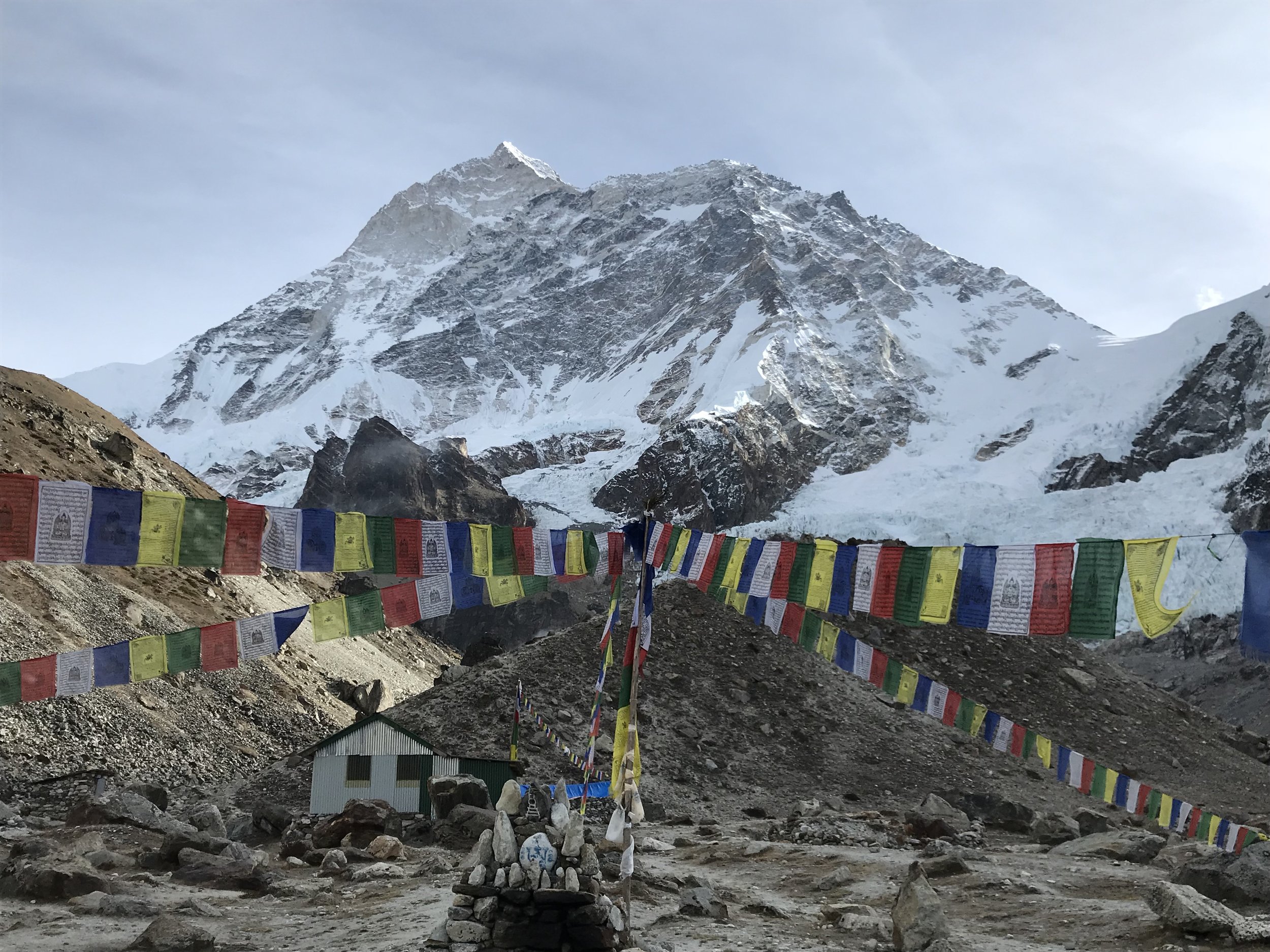




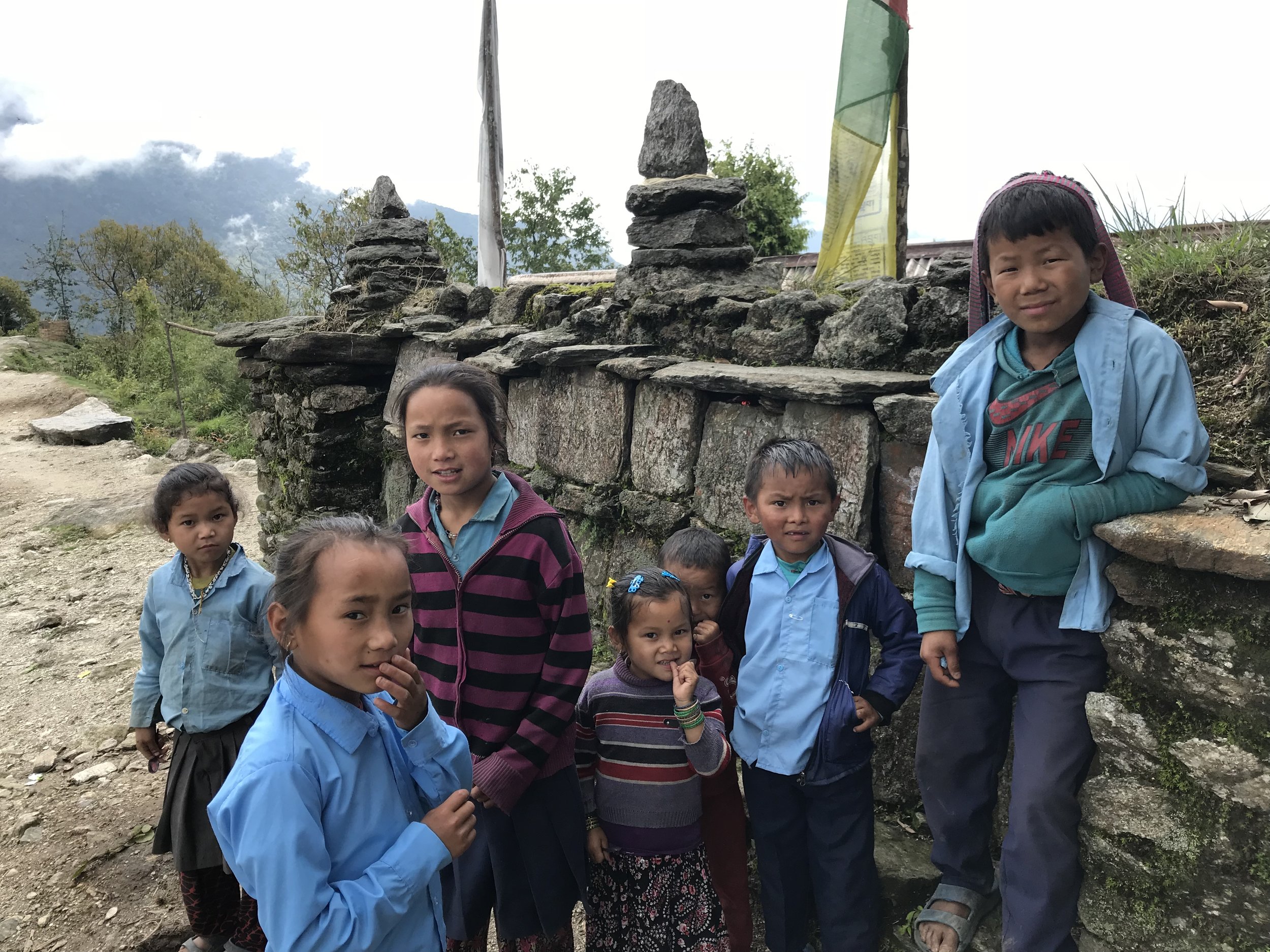
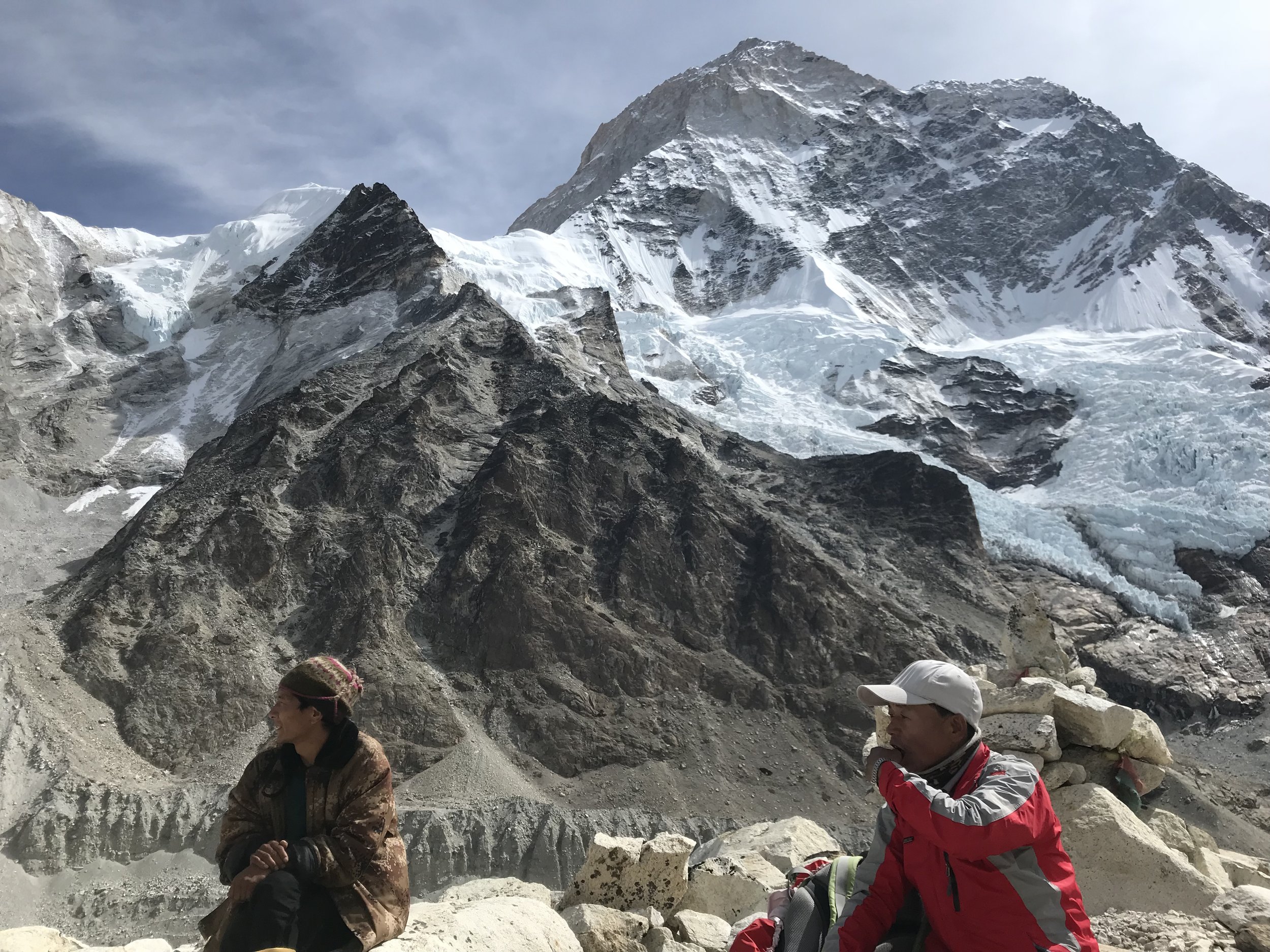
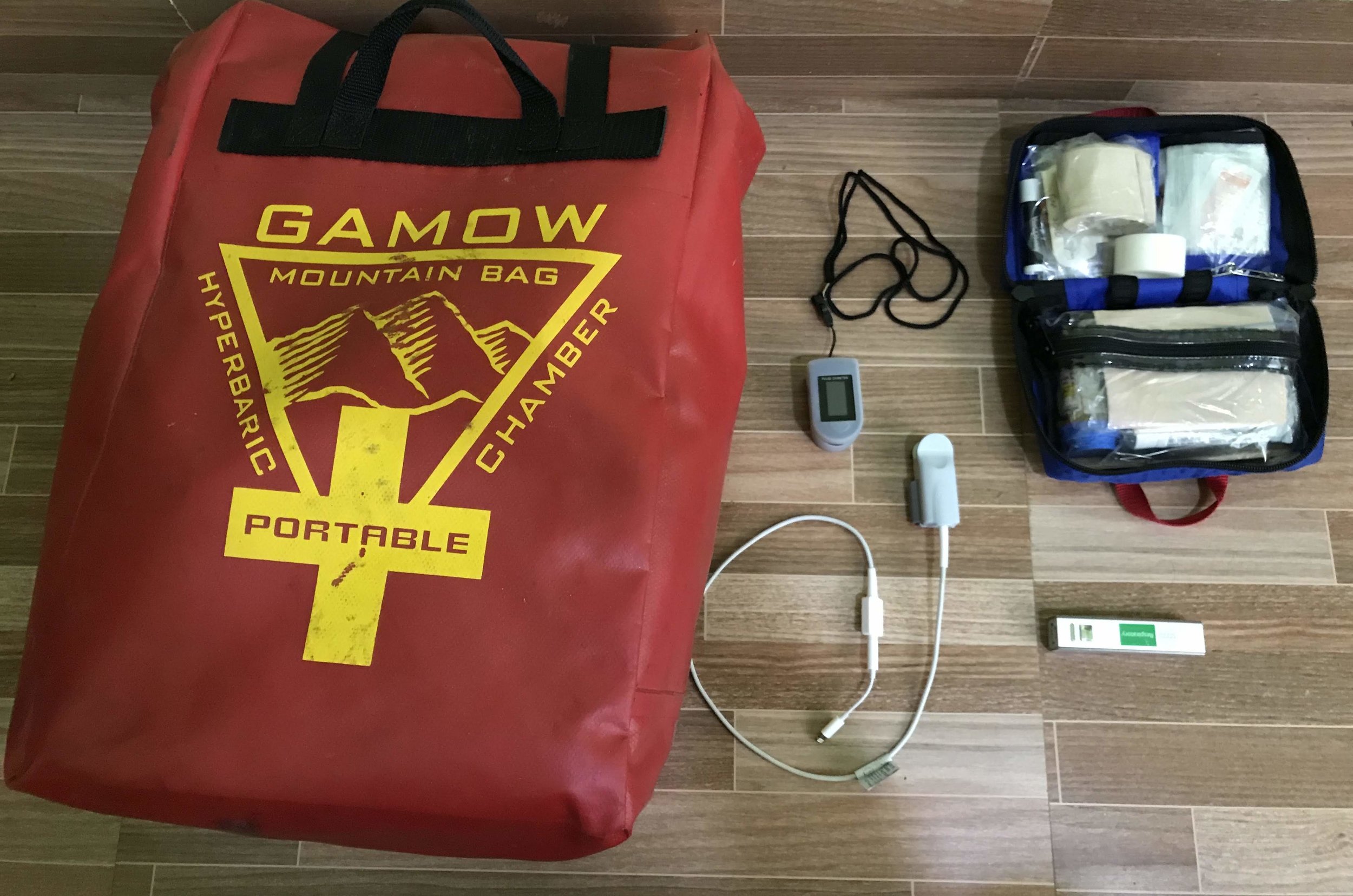
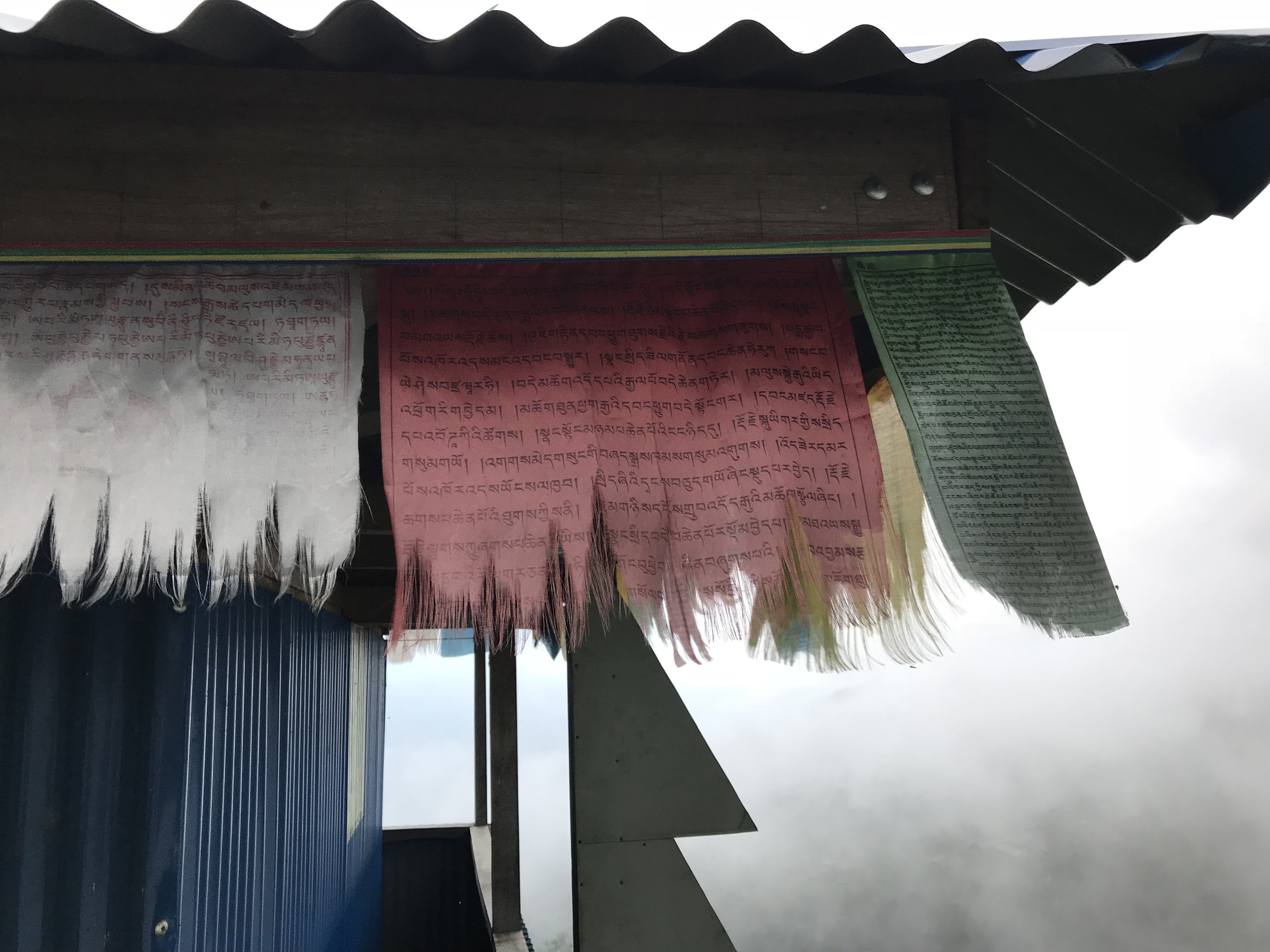
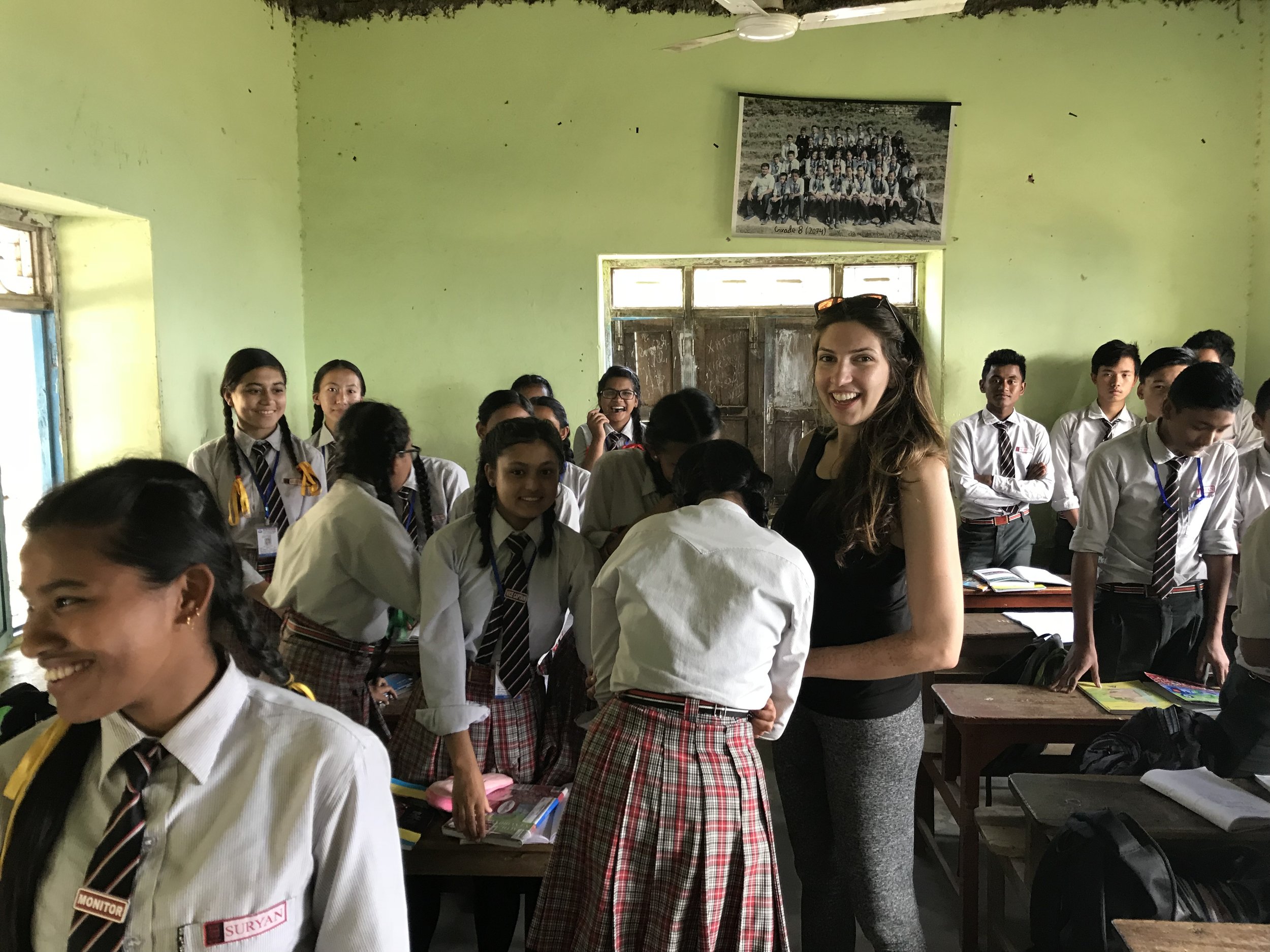
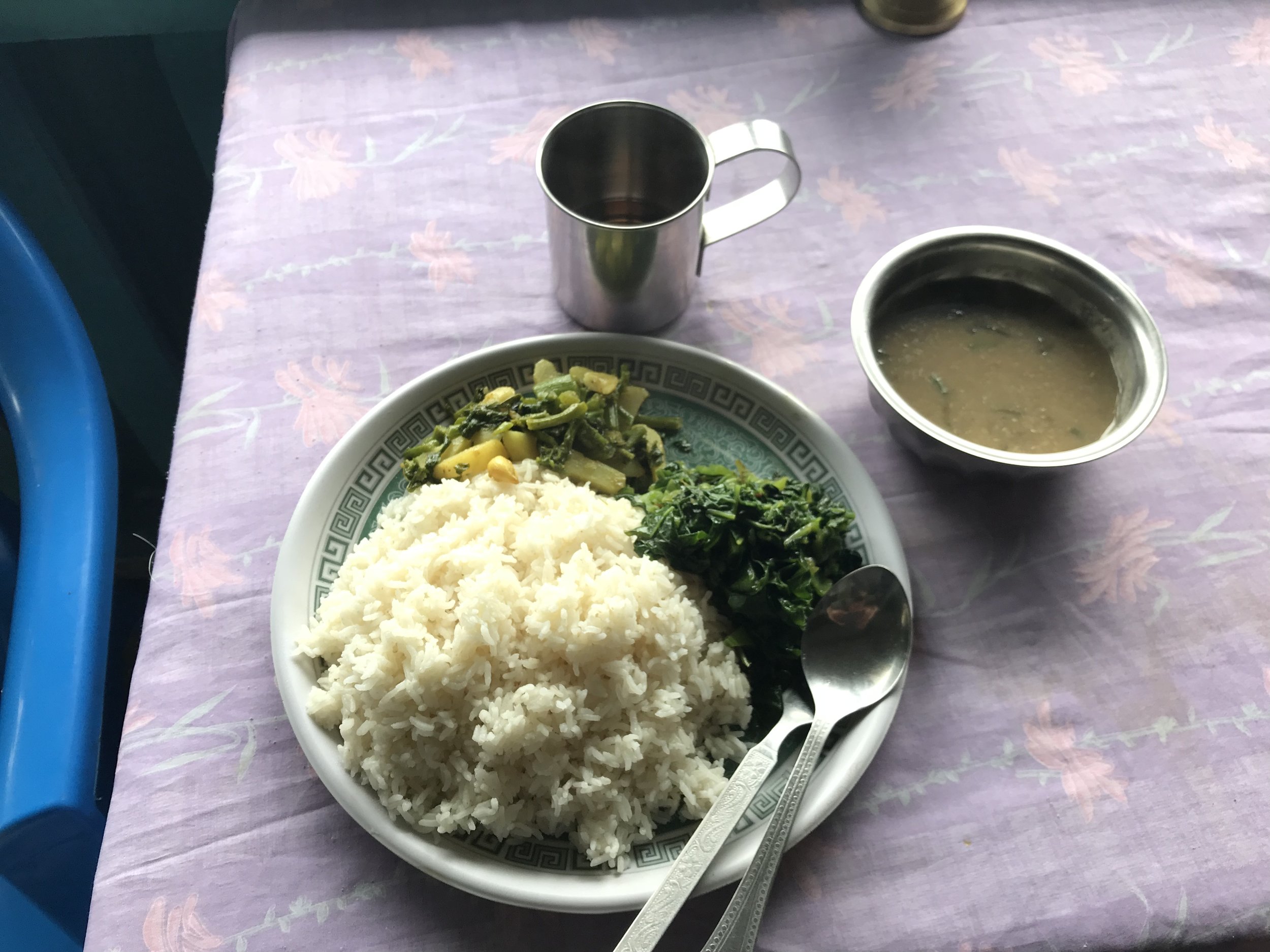
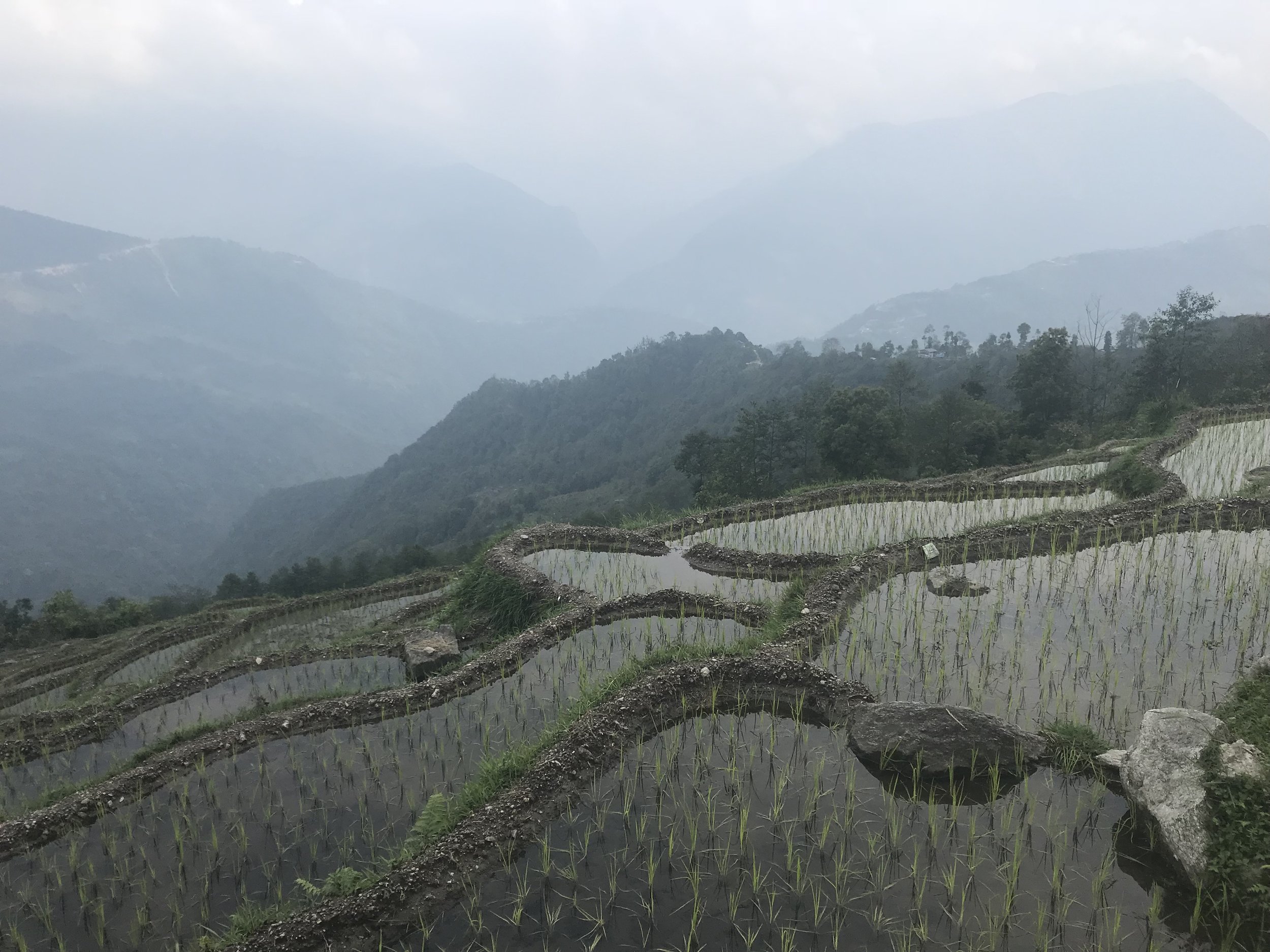
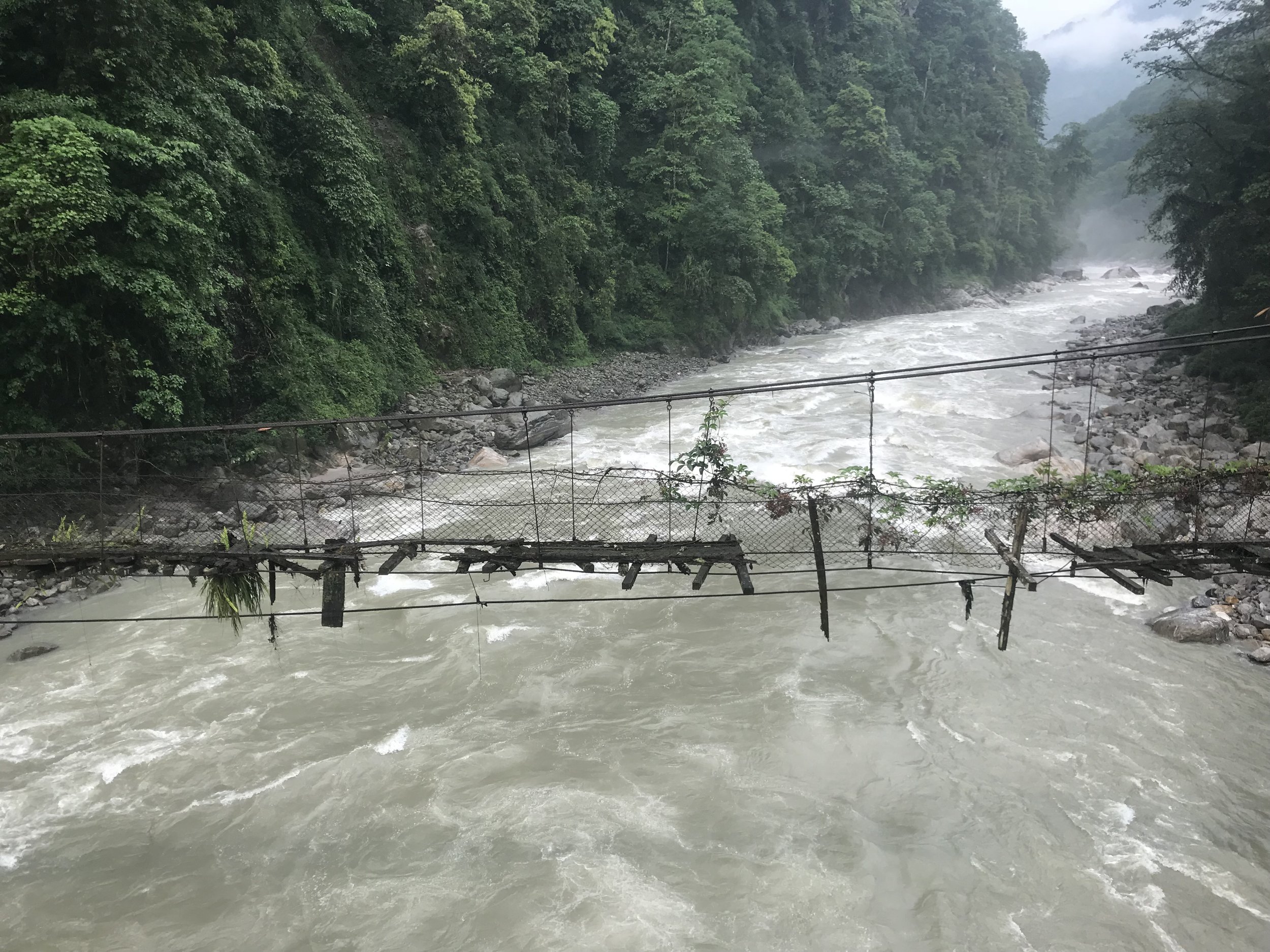


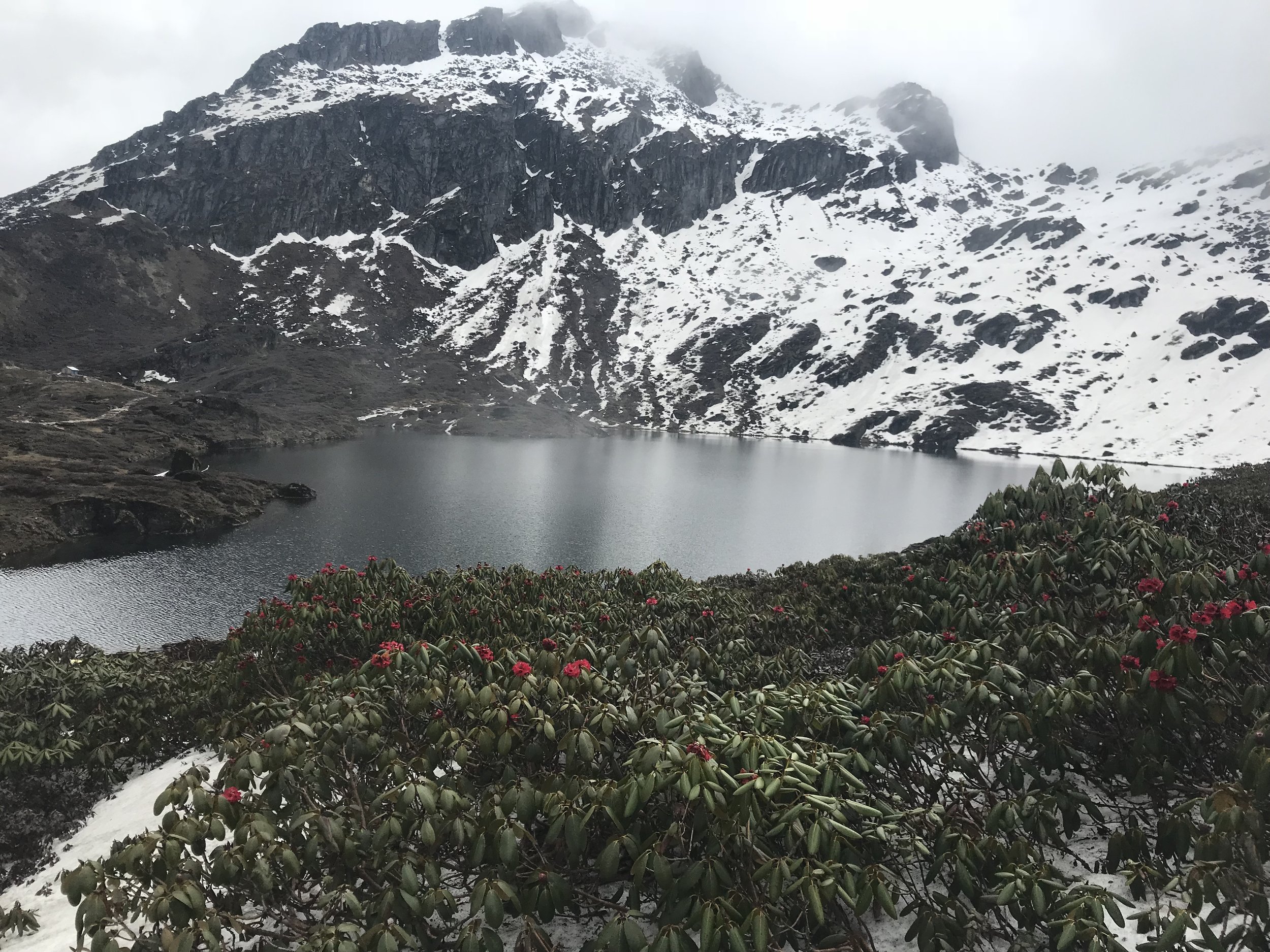
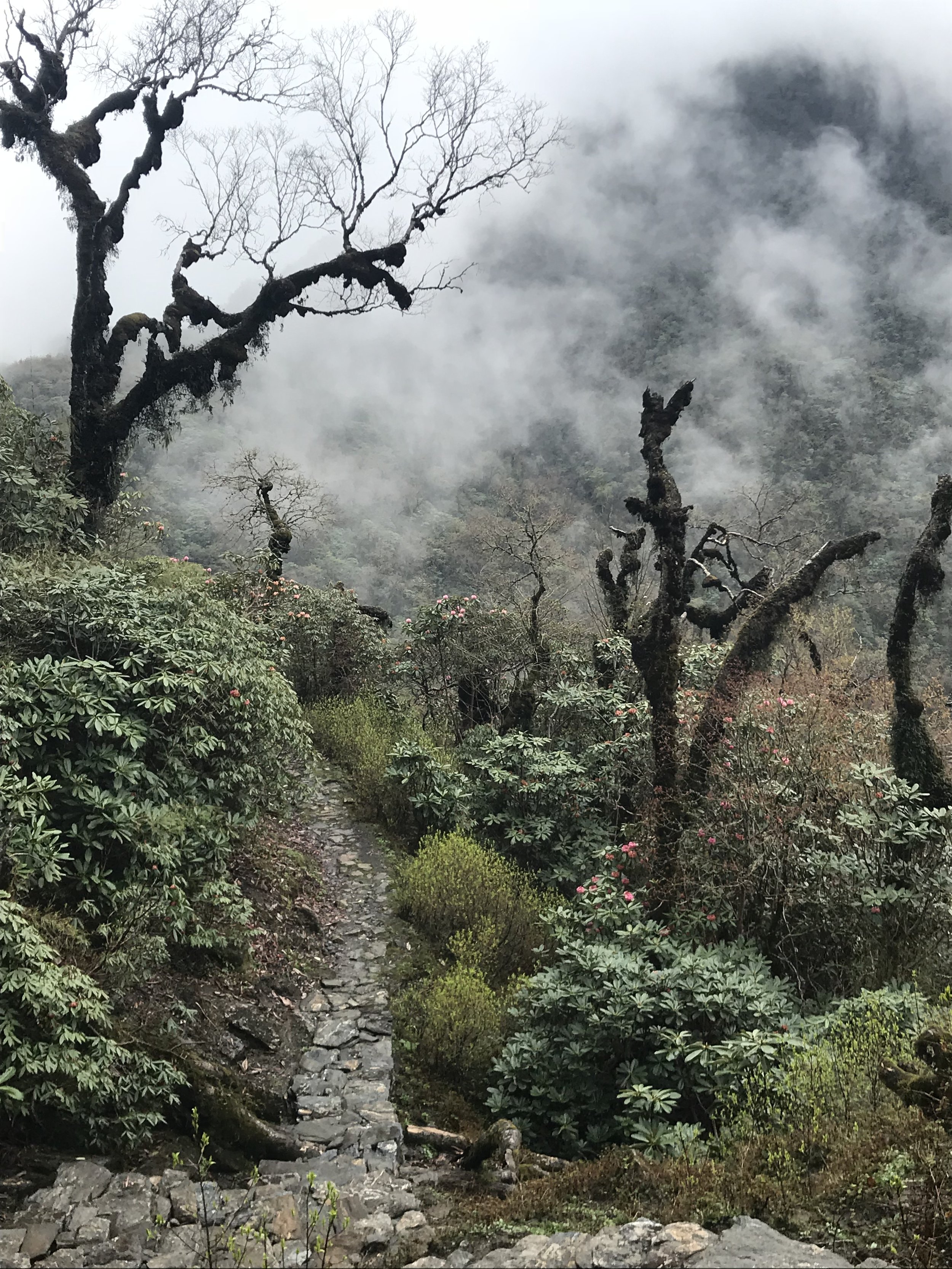


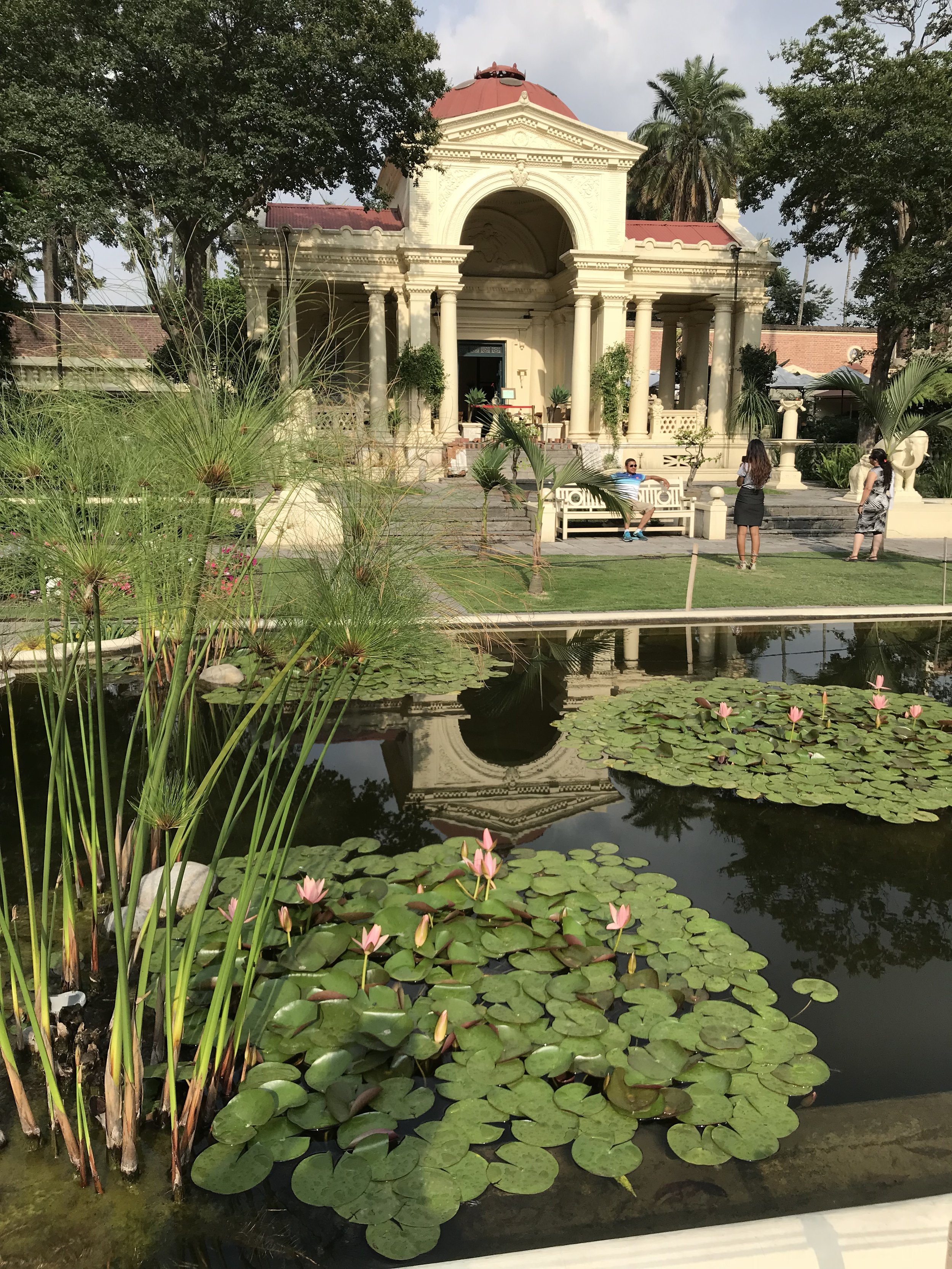
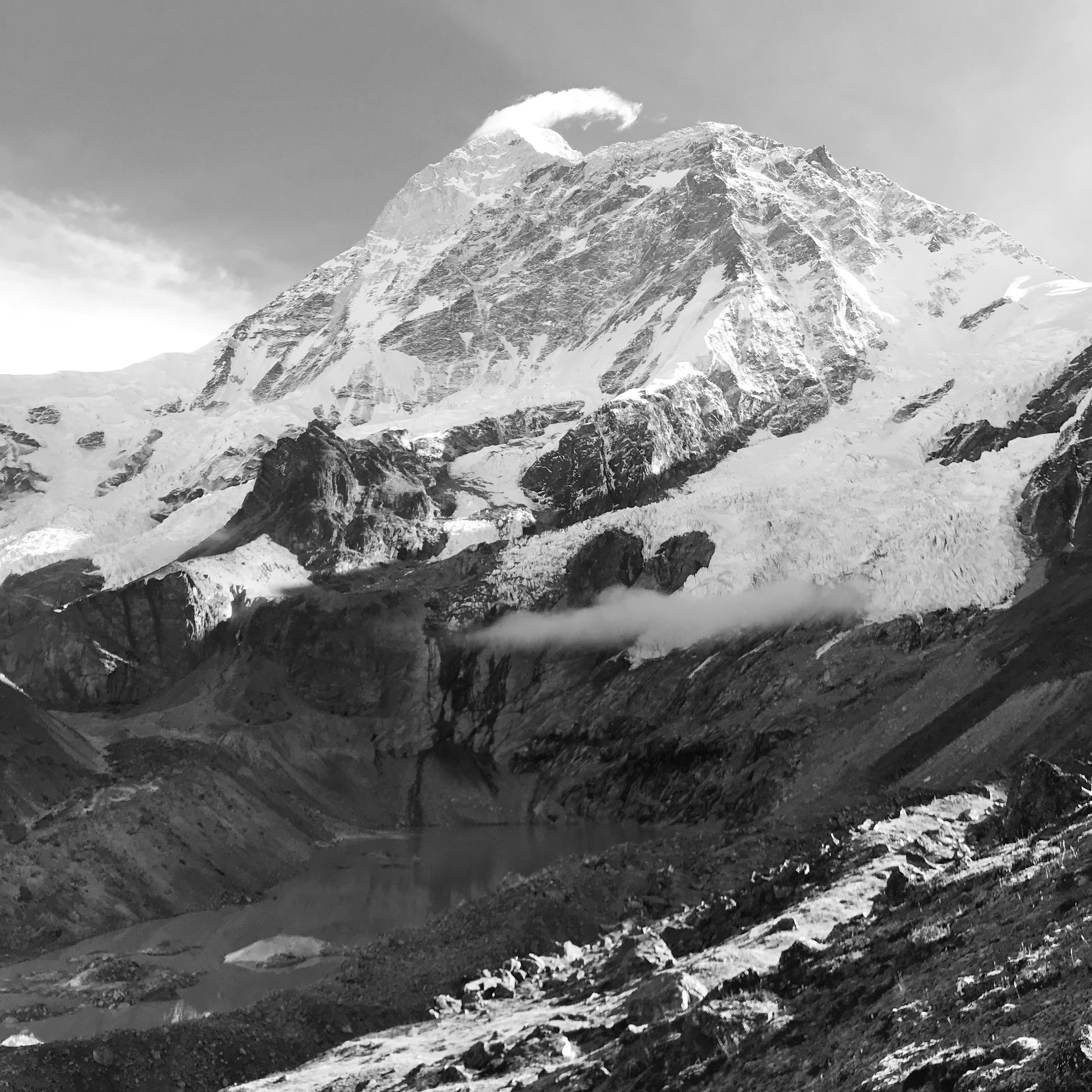
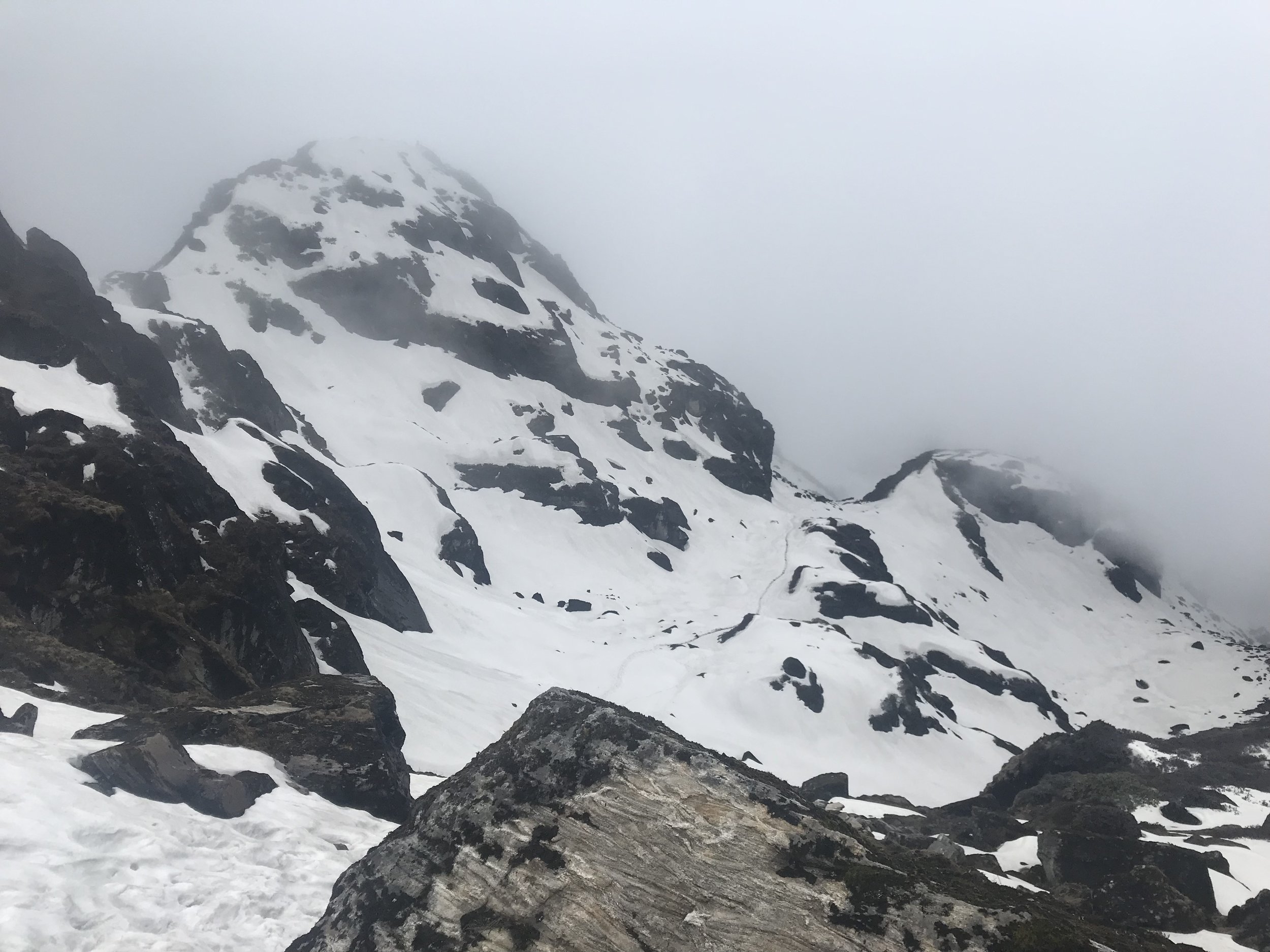

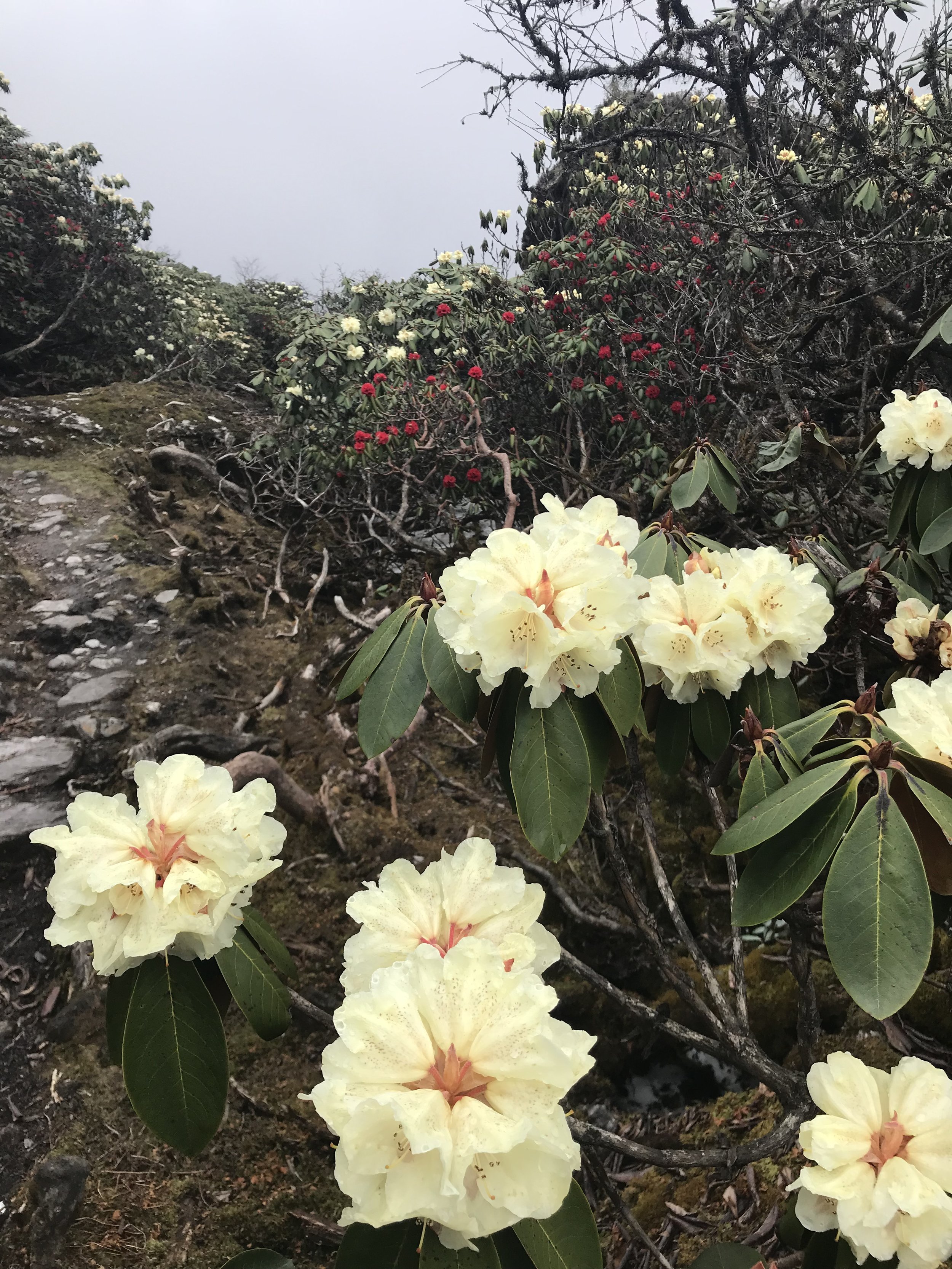
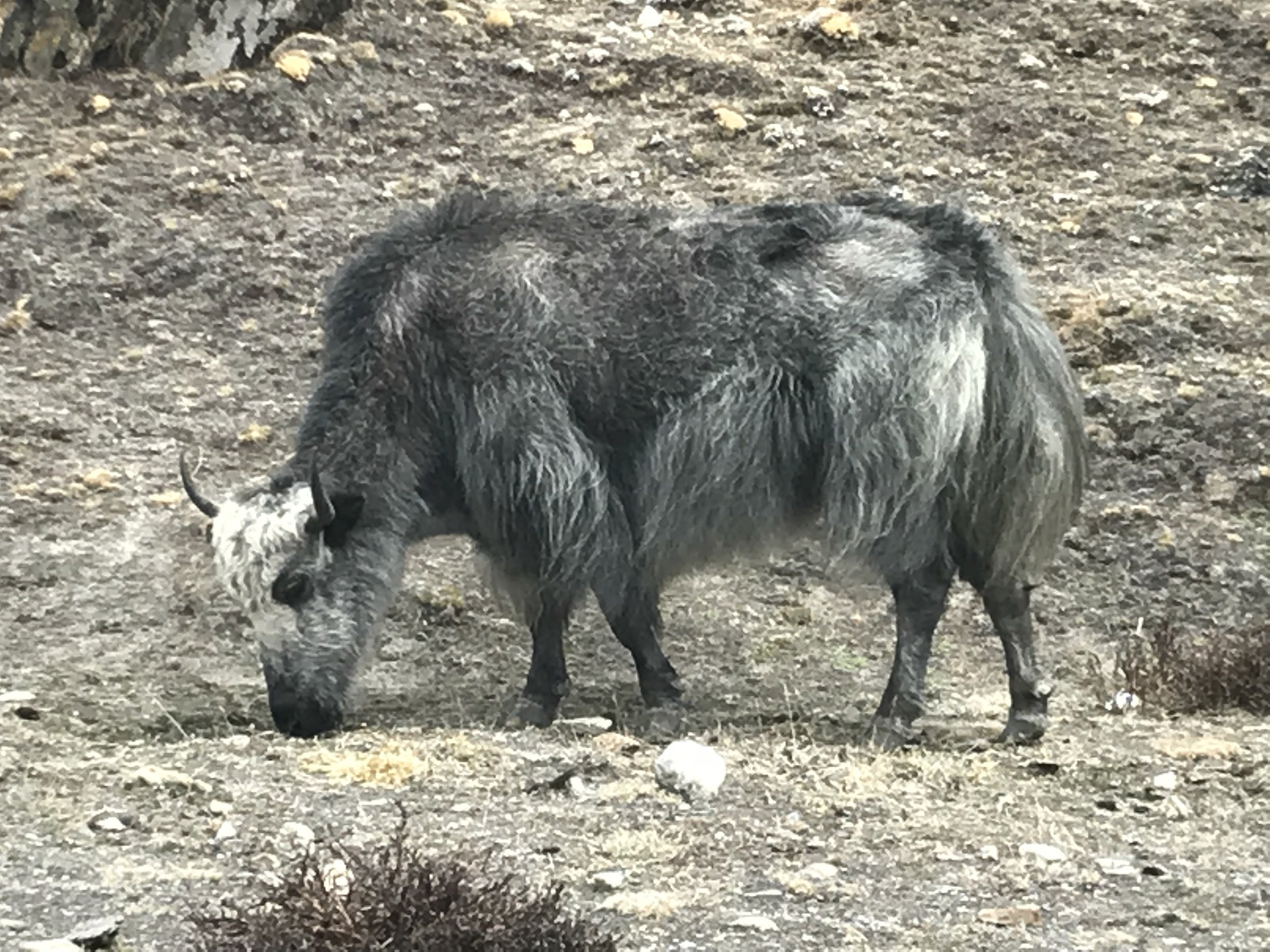
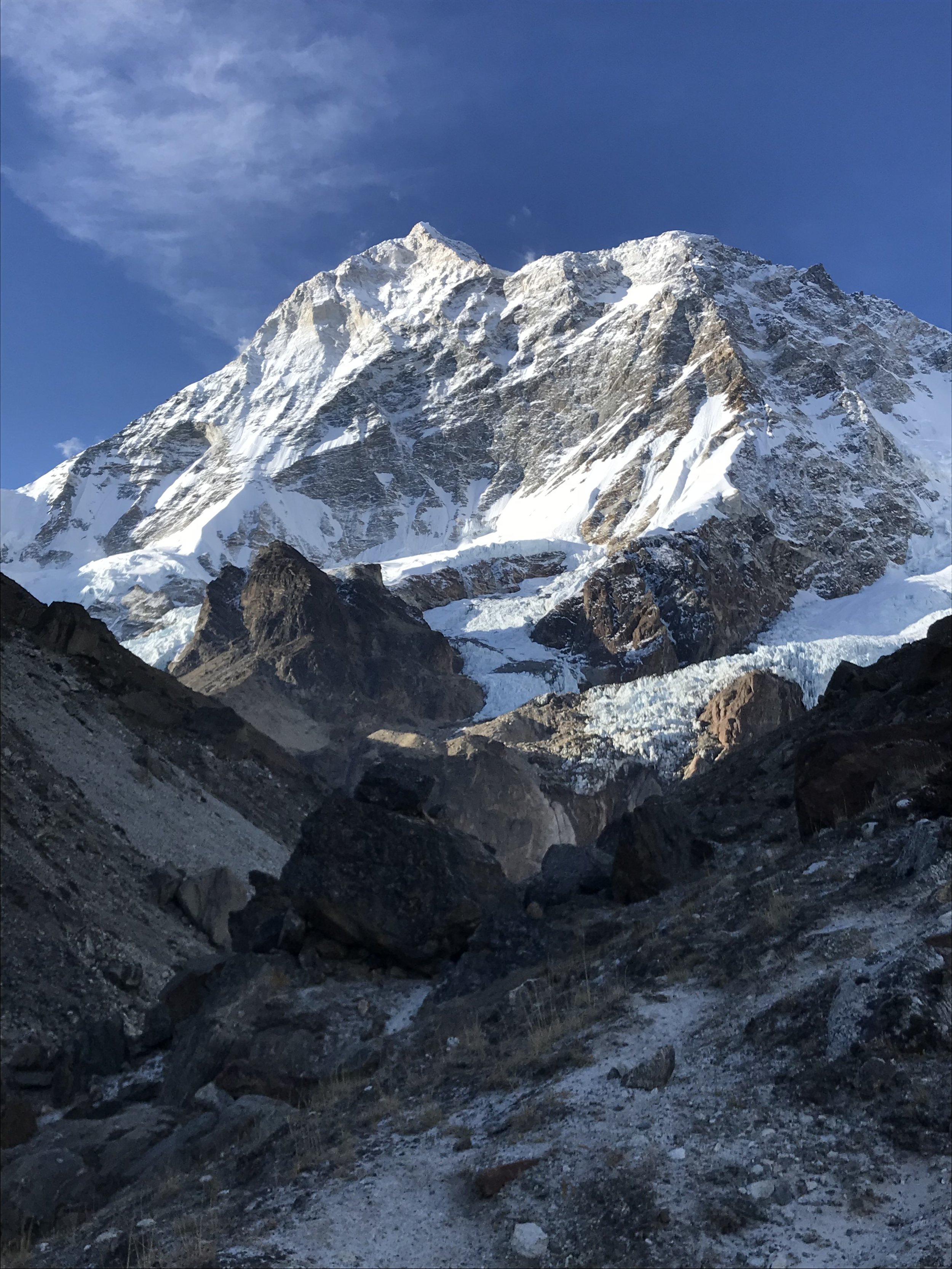
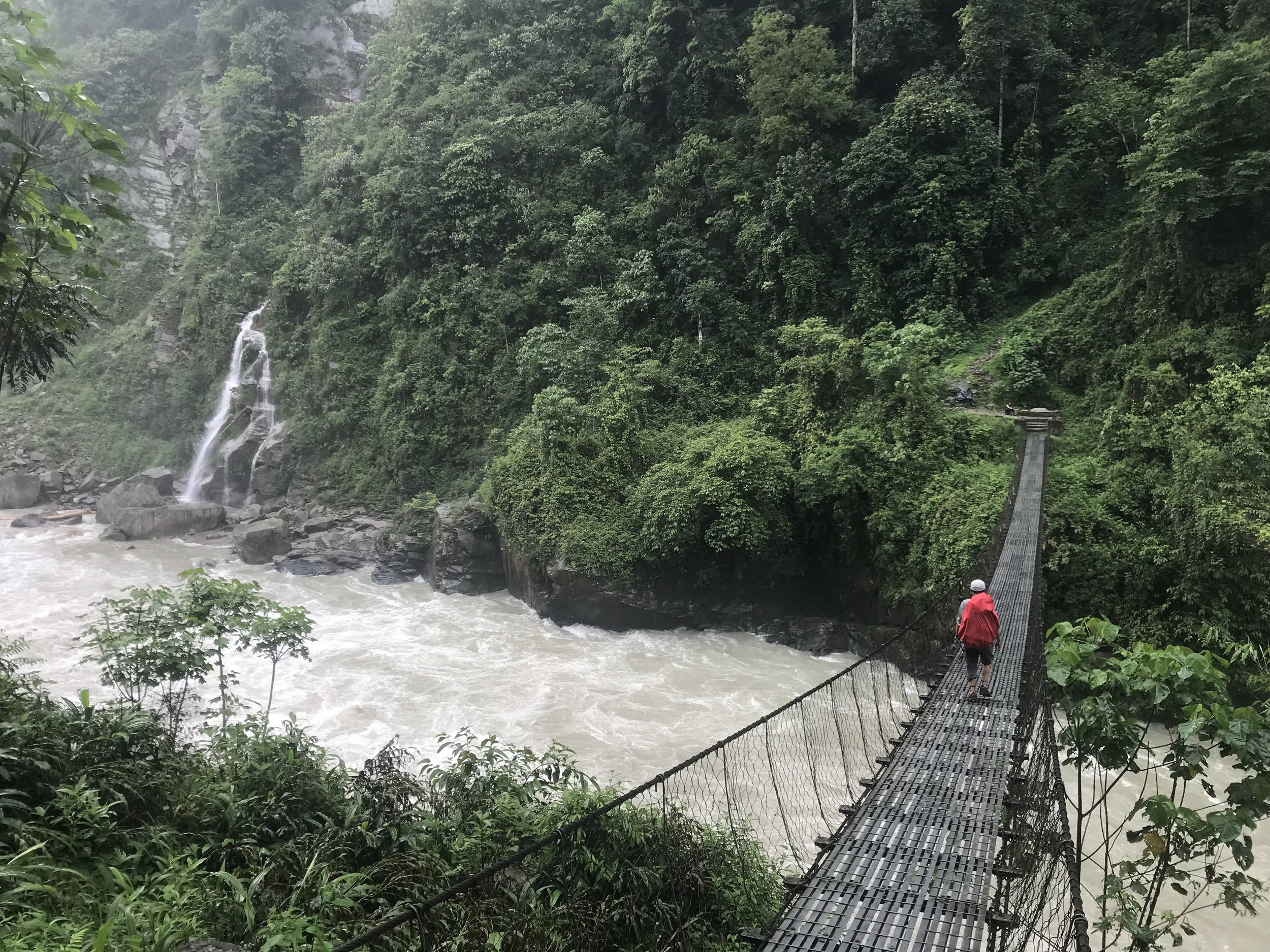
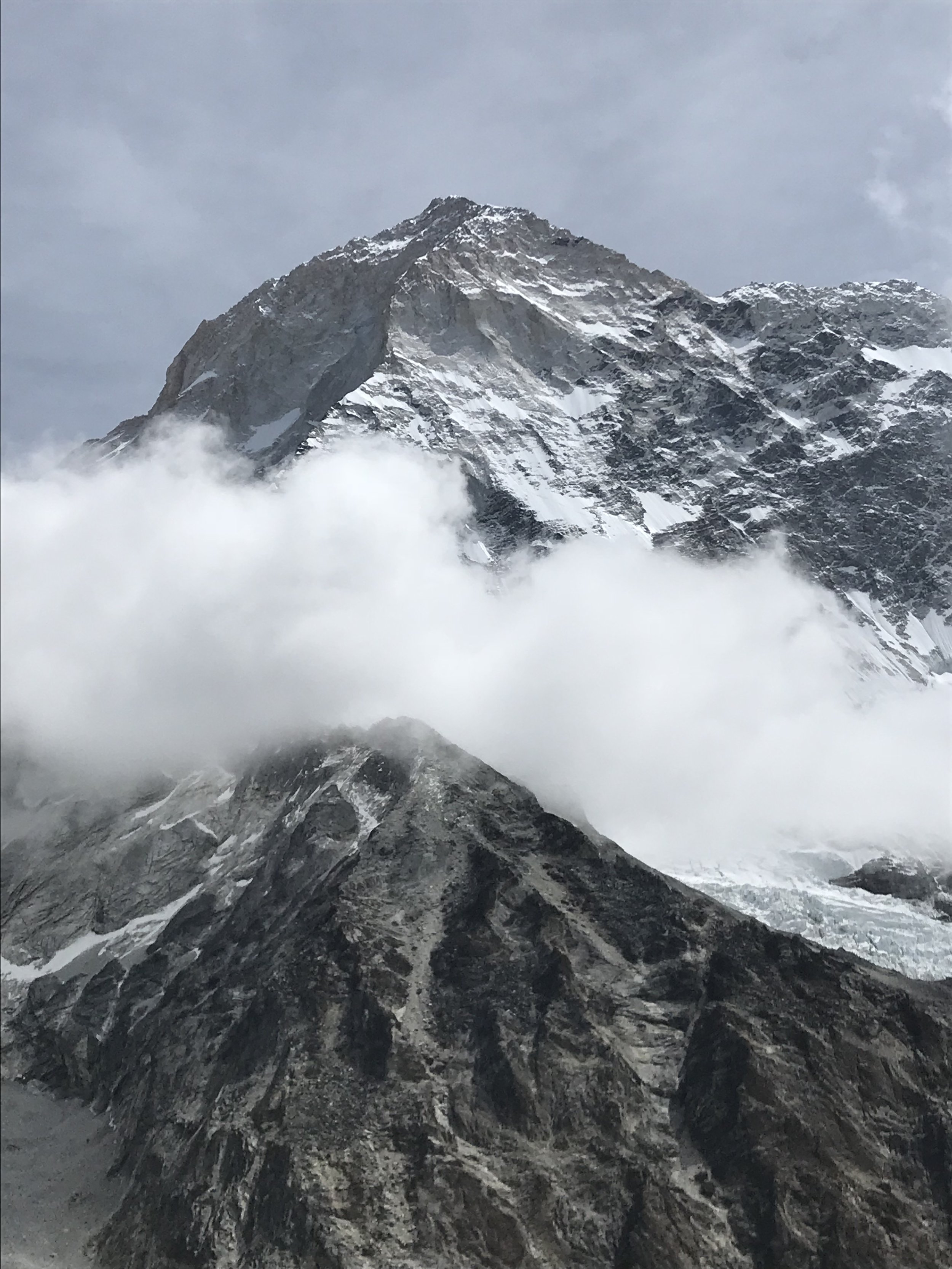
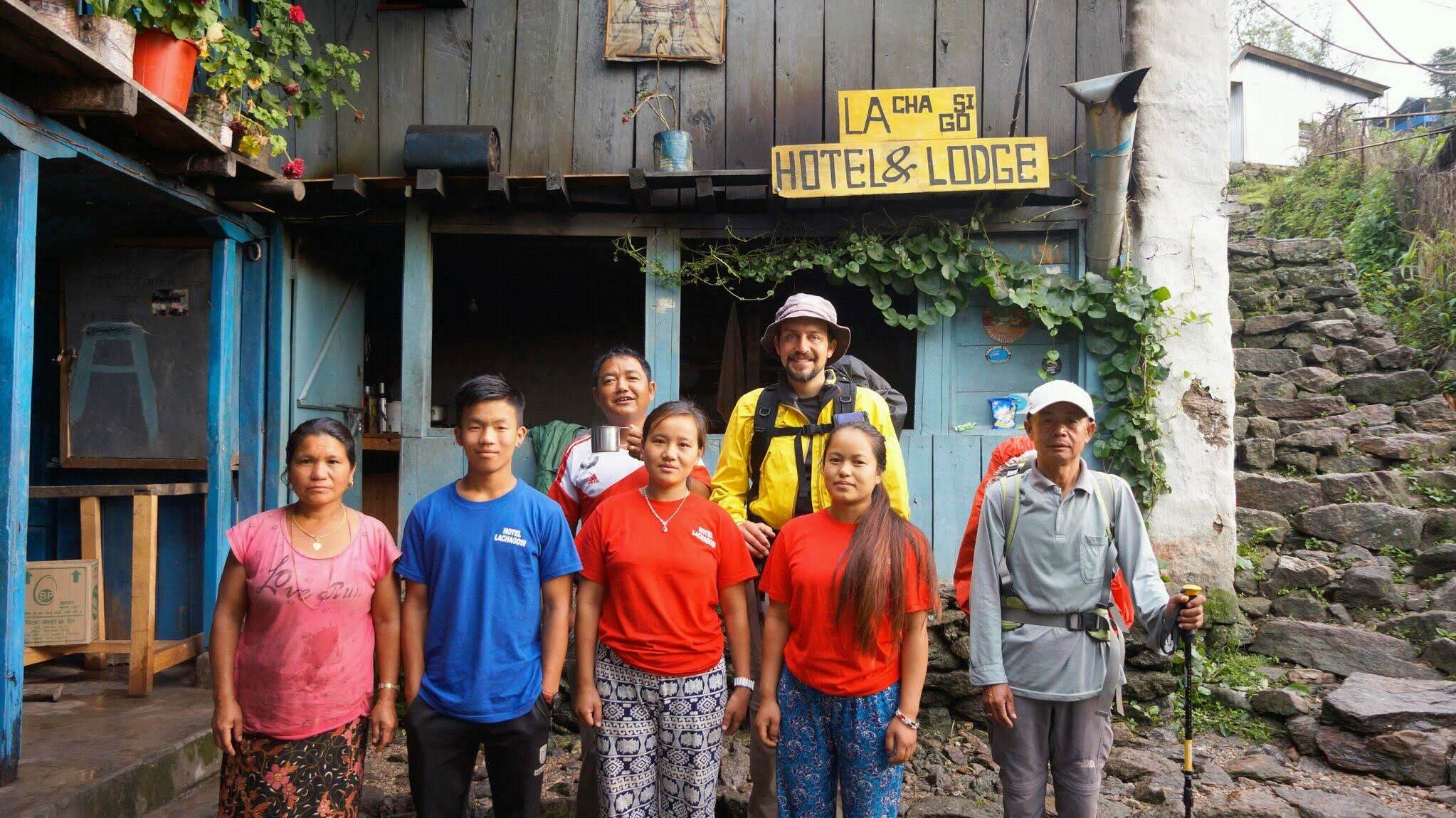
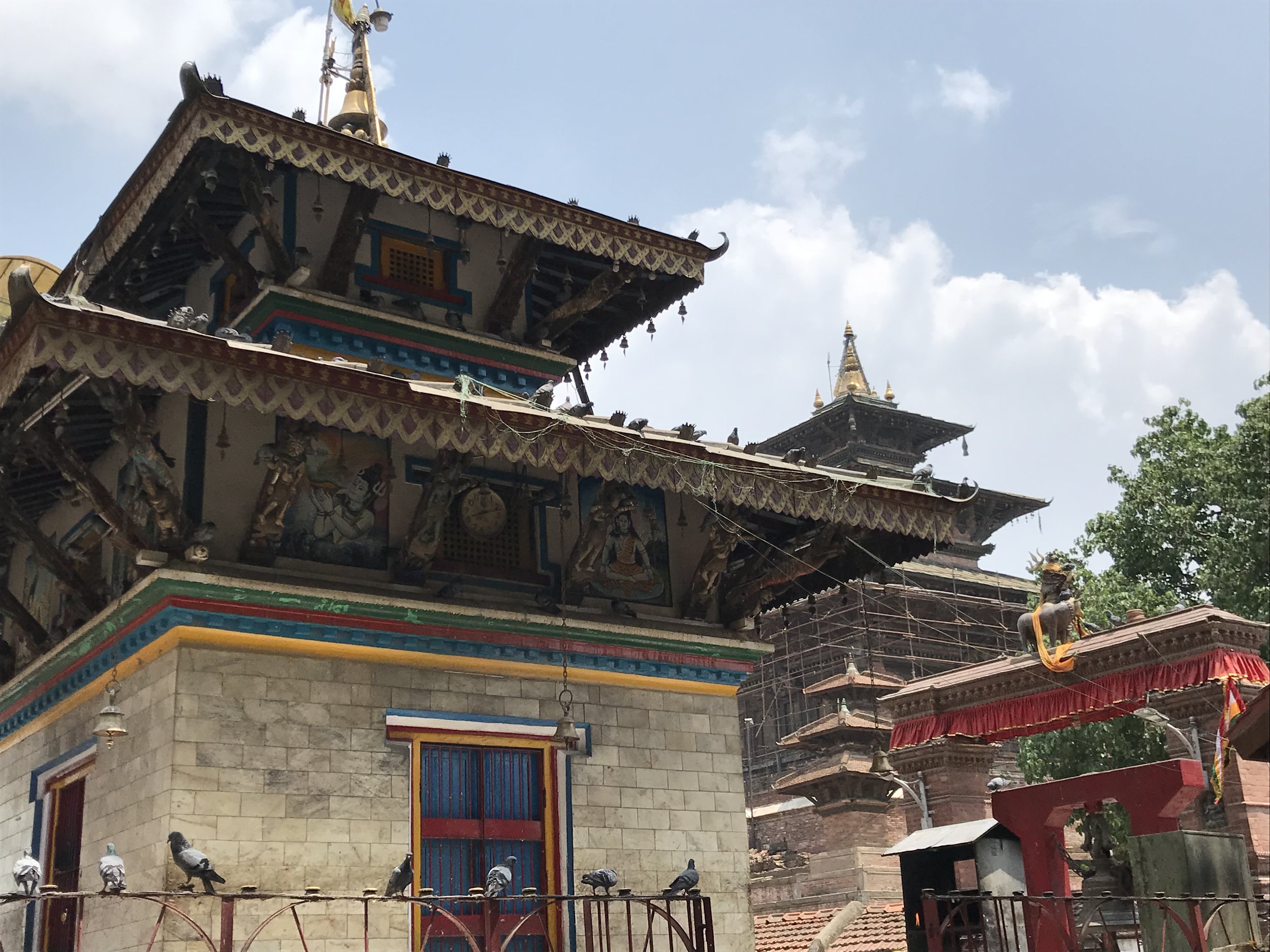
Logistics
Students arriving from outside Nepal must be in Kathmandu no later than Saturday, November 2nd, 2019. Hotel, airport pick-up, lodging, and meals will be provided that day. Those arriving and students already in Nepal will join Dr. Shupp and Helping Hands staff for a welcome dinner and to prepare equipment for our trek. We will fly to Tumlingtar (a small citiy in eastern Nepal). From there, we will drive to the market town of Khandburi in the foothills of the Himalaya where we will spend our final night in a hotel prior to beginning our trek. We will fly back to Kathmandu from Tumlingtar at the end of the course. Students returning home from abroad will fly home from Kathmandu
Registration and Tuition
Tuition: $3,250 USD (with University Credit) or $2,500 USD (without University Credit) – Includes domestic air and ground transport within Nepal, guide and porter services, hotel and trek lodging, most meals, and course texts and lab equipment including oximeters and Gamow Bag.
Contact Us
Helping Hands Health & Education, 948 Pearl Street, Boulder, CO 80302. Phone: 303.448.1811 Email: aaronshupp@helpinghandsusa.org
About Course and Instructors
This course was originally developed by Professor R. Igor Gamow of the University of Colorado who is the famous inventor of the Gamow Bag™, a portable hyperbaric chamber that has become a fundamental piece of safety equipment for high altitude expeditions. Students will get a chance to use this bag as a part of the course in addition to other biological monitoring devices. The Gamow Bag™ has saved countless lives since its inception and is one of the greatest accomplishments of Gamow’s multidisciplinary research group. Professor Gamow taught a version of this course both in Nepal and at the University of Colorado for over 25 years and is excited to bring it back with updated content.
Dr. Shupp was originally a student of Prof. Gamow and has worked and taught with him since 1998. Together, they have updated this current course to inspire a new generation of scholars to draw from diverse backgrounds to develop leadership and problem-solving skills for today’s newest challenges. Dr. Shupp also serves on the Board of Directors of Helping Hands Health Education based in Boulder, Colorado and Nepal. This Nepali founded non-profit has been building schools, colleges, hospitals, and emergency shelters in Nepal and six other developing nations for over 25 years. As a part of its mission, Helping Hands Health Education also specializes in placement of international volunteers for educational, healthcare, and infrastructure missions abroad. Nepal’s oldest and most prestigious educational institution Tribhuvan University has partnered with Helping Hands to sponsor and accredit The Biophysics and Physiology of High Altitude Mountaineering: Field Lab. As a part of this course, students will be introduced to opportunities for further engagement in humanitarian endeavors and responsible and sustainable projects that benefit the people of Nepal.
We will begin our trip in the subtropical Nepali capital of Kathmandu where students will meet Dr. Shupp and Nepali guides. Here we will explore Nepali cultural and religious sites, enjoy local cuisine, and begin our first physiology experiments. We will then depart for Khandbari (elevation 2,844'), a hub for trekking to Mount Makalu. From Khandbari, we will begin our trek toward Makalu gaining elevation as we approach Basecamp (elevation 15.750'). Each day, we will have brief lectures and conduct experiments as we visit cultural sites, tea houses, and villages with local guides and porters.
Learning Objectives
A pre-trip study guide will be compiled and sent to students prior to arrival in Nepal that will be based primarily on the textbook: Going Higher: Oxygen, Man, and Mountains by Charles Houston, 5th Edition. ISBN-10: 0898866316
Understand and explain the role of oxygen in supporting life through a historical perspective of physiologic discoveries
Describe the anatomy of the human cardiopulmonary system and how oxygen is distributed and utilized through respiration, circulation, and metabolism
Understand the categories and pathophysiology involved in the etiologies of mountain sickness
Describe the process of acclimatization and how it relates to the prevention and treatment of altitude sickness
Demonstrate the ability to keep a field laboratory notebook to collect data, provide analysis, and report findings of physiologic experiments conducted at altitude
Registration and Home University Credit
US and International students will apply and enroll through Helping Hands Health Education and receive 3 semester hours of university credit through a partnership with Tribhuvan University, one of Nepal’s most acclaimed institutions of higher learning, and Helping Hands Health Education, a Nepali multinational non-profit focused on improving healthcare disparities across the developing world. If you have any questions regrading credits, please contact Dr. Shupp: aaronshupp@helpinghandsusa.org
Registration for trip departing November, 2019 is now open. You can secure your place by making a non-refundable $250 USD deposit today. Full payment is due by September 30th, 2019. Please complete the form and enter payment information. You will have the option to pay deposit only or full course fees
REGISTRATION IS OPEN NOW FOR TRIP DEPARTING 11/02/2019!
Prerequisites
This course is intended to inspire students with a diverse range of interests and backgrounds to further explore biophysics and physiology, as well as the beauty of the Nepali mountains and culture. Both science and non-science students are highly encouraged to apply. Students must be physically fit and able to trek at high altitude.
Course Philosophy
This course is primarily an outdoor adventure implying uncertain outcomes and potential hazards exist. Nepal is a developing nation with many social, economic, and infrastructural challenges. While the people and political situation are largely peaceful, unforeseen weather events, natural disasters, strikes, technological issues, and myriad other situations may arise creating delays and changes to the itinerary. Being a happy traveler in Nepal requires patience and flexibility, Arriving prepared for the unknown and a spirit of adventure will help provide a more rewarding experience. The course will proceed regardless of weather; however, guides may alter trekking itinerary as appropriate pending conditions and individual/group safety issues.

